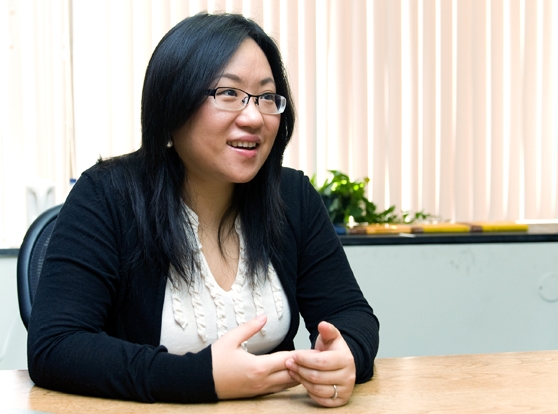31st International Panel Data Conference
July 6-7, 2026
31st International Panel Data Conference
July 6-7, 2026

Xu Cheng is a Professor of Economics at the University of Pennsylvania, specializing in econometrics and its empirical applications. She earned her Ph.D. from Yale University in 2010 and has held visiting positions at Princeton and Yale. Her research develops robust econometric methods addressing challenges like limited identification, model misspecification, strong dependencies, and high-dimensional estimation via machine learning, with applications spanning labor, macroeconomics, IO, and finance. A Fellow of the Journal of Econometrics and the International Association for Applied Econometrics, she’s also a Penn Faculty Fellow. Professor Cheng serves as Co-Editor of Econometric Theory and associate editor for several major journals, including Quantitative Economics, Journal of Econometrics, Econometrics Journal, and Journal of Econometric Methods.

Sílvia Gonçalves is a Professor of Economics in the Department of Economics at McGill University and a specialist in financial econometrics, time series analysis, and econometric theory – especially in bootstrap methods. She earned her Ph.D. in Economics from the University of California, San Diego, and since 1999 has been a CIRANO Researcher and Fellow. Professor Gonçalves plays key editorial roles – including Co‑Editor of the Journal of Financial Econometrics and Associate Editor for the Journal of Econometrics, Journal of Time Series Analysis, Journal of Business & Economic Statistics, Econometrics Journal, and Portuguese Economic Journal. Her prolific research includes influential work on bootstrap inference under cross-sectional dependence, high-frequency volatility, factor models, and nonlinear time series.

Guido Kuersteiner is a Professor of Economics at the University of Maryland, College Park, and a prominent figure in econometrics. He earned his Ph.D. in economics from Yale University in 1997 and has held academic positions at institutions such as MIT, Boston University, UC Davis, and Georgetown University. His research encompasses theoretical and applied econometrics, focusing on areas like panel data models, spatial econometrics, time series analysis, and causal inference. Professor Kuersteiner has contributed to understanding dynamic panel models, weak instruments, and bias correction techniques. He serves as Co-Editor of Econometric Theory and Associate Editor for the Journal of Econometrics, Econometrics Journal, and the Swiss Journal of Economics and Statistics. Recognized for his contributions, he is a fellow of the International Association of Applied Econometrics, the Journal of Econometrics, and the Spatial Econometrics Association

Martin Weidner is a Professor of Economics at the University of Oxford and a Fellow of Nuffield College, renowned for his contributions to econometrics, particularly in panel data models, social networks, and high-dimensional inference. He holds dual Ph.D. degrees: one in Physics from the University of Hamburg (2006) and another in Economics from the University of Southern California (2011). Prior to his current role, Professor Weidner served as a faculty member at University College London and remains an Honorary Professor there. He is also affiliated with the Institute for Fiscal Studies and was a Turing Fellow at the Alan Turing Institute. His research has been supported by a European Research Council Consolidator Grant for the project “High-Dimensional Inference for Panel and Network Data” (PANEDA). Professor Weidner’s work addresses complex econometric challenges, including bias correction in nonlinear models and inference in settings with interactive fixed effects, and he actively contributes to the academic community through initiatives aimed at reforming the publication process in econometrics.